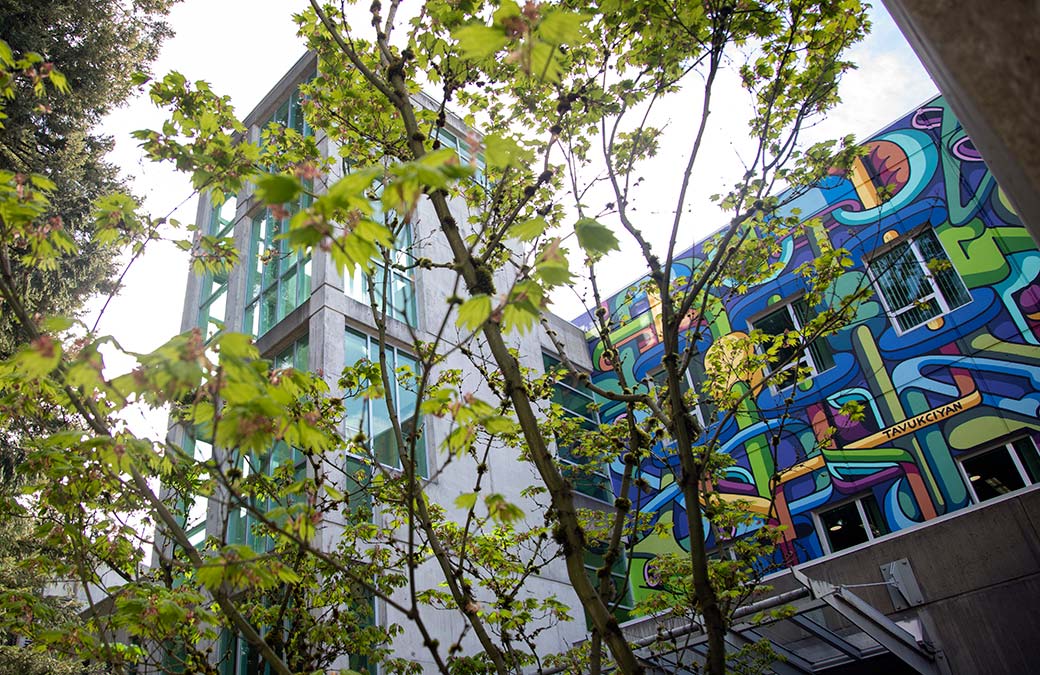Learn more about the Accessible CapU Committee, including how to register your feedback or volunteer to join.
The Accessibility Advisory Committee provides guidance and feedback to the Senior Leadership Council on how it receives input from the University community, on accessibility priorities and on developing an institutional plan.
Meet the Inaugural Accessible CapU Committee
Introducing your inaugural Accessible CapU Committee:
| Name | Title | Department |
|---|---|---|
| Daniel Levangie | AVP Student Success (co-chair) | Student Success |
| Vacant | Committee co-chair | |
| Vacant | Facilities Services and Campus Planning | |
| Louise Allison | HR Manager, People Services | Human Resources (designate) |
| Bhuvinder Singh Vaid | Educational Developer, Centre for Teaching Excellence | Capilano Faculty Association |
| Denise Corcoran | Senior Digital Strategist, Marketing & Digital Experience | MoveUP Staff |
| Heather Mitchell | Accessibility Services Coordinator | Accessibility Services |
| Dilkaran Singh . | Vice-President, Equity | Capilano Students' Union Executive |
| Karan . | BA, Psychology | Student representative |
| Elissa Burns | AA, Psychology | Student representative |
| Sheila Perret | BA, Interdisciplinary | Student representative |
Terms of Reference
As outlined in the legislation, the Accessible CapU Committee is tasked with two primary objectives:
- Assist the Capilano University Leadership Council (SLC) to identify barriers for individuals studying at, working for, or interacting with the University; and
- Advise the Capilano University Leadership Council (SLC) on how to remove and prevent barriers for individuals studying at, working for, or interacting with the University.
To accomplish these objectives, the Capilano University Accessibility Committee (CUAC) will provide guidance and feedback to the SLC on how it receives input from the University community, on accessibility priorities and on the development of an institutional Accessibility Plan.
The CUAC will be comprised of 8–12 members who are a representation of the University community.
- 1 employee from Accessibility Services;
- 1 employee from Facilities;
- 2 Capilano Faculty Association (CFA members);
- 1 employee from Human Resources;
- 2 MoveUP members;
- 1 Capilano Students' Union (CSU) executive member (appointed by the CSU);
- 3 additional students (who may also be members of the CSU board);
- 1 optional external member (with disability-related expertise and/or lived experience); and
- 2 members (or designates) from among the 4 administrative leads.
One co-chair will be elected from among the members and one co-chair designated from the four administrative leads (or designates).
The CUAC in its composition will adhere to the goals of the Act by reflecting the diversity of British Columbians.
Additionally, at least half of the members are persons with a disability or work in areas that support persons with disabilities and at least one member is an Indigenous person. Individual members may hold multiple identities.
The CUAC will act as a central mechanism for providing guidance and feedback to the administrative leads responsible for university policy and operations.
The four operational leads associated with accessibility are:
- Strategic-Director, People, Culture, and Diversity;
- Associate Vice-president Academic/Associate Provost;
- Associate Vice-president, Facilities, Services and Campus Planning; and
- Associate Vice-president, Student Success.
From time to time, the CUAC may choose to create sub-committees or working groups to achieve the overall aims of the committee.
These groups will have at least two members of the CUAC with the additional membership coming from among the members of the committee and/or other members of the university community.
Committee members are expected to:
- Attend and prepare for meetings. Advise the Chair with notice where possible of necessary absence due to illness or unforeseen circumstances.
- Where continuing meeting absence is necessary, the Chair will seek replacement as soon as possible.
- Be prepared and informed of relevant issues whether from experience, education, research, or influence.
- Be prepared to articulate independent views while being a team member and to accept or receive feedback in a respectful and effective manner.
- Analyze barrier resolution goals from many perspectives considering the larger system within which these reside.
- Be responsible for the continued review of university practice and for making recommendations for improved service.
- Utilize a constructive, collaborative and rational approach to problem resolution.
- Maintain confidentiality of information disclosed in confidence.
Meeting regularity will be determined by the committee. Meetings may be held in-person or online. Co-chairs will develop an agenda in advance in consultation with committee members.
Members seeking to add agenda items will be asked to notify the co-chairs at least one week before the meeting.
Minutes will be recorded for each meeting and reviewed and approved at each subsequent meeting.
Committee members will be appointed to two-year terms of service.
After the first two-year cycle, half the existing members will be re-appointed for an additional one-year appointment to create the desired annual renewal of membership.
Subject matter experts may be invited to attend meetings as guests. Guests will be formally invited by the co-chairs.
Via the two co-chairs, the CUAC reports to the four administrative leads who act as designates of the Senior Leadership Council.
One co-chair is elected from among the members and one co-chair is designated from the four administrative leads (or designates).
At the discretion of the administrative leads in consultation with the co-chairs and committee members, these terms of reference may be adjusted to align with changing requirements.
